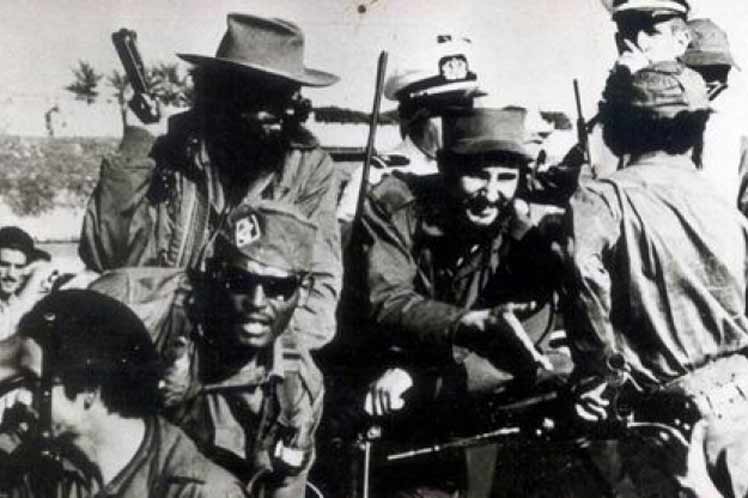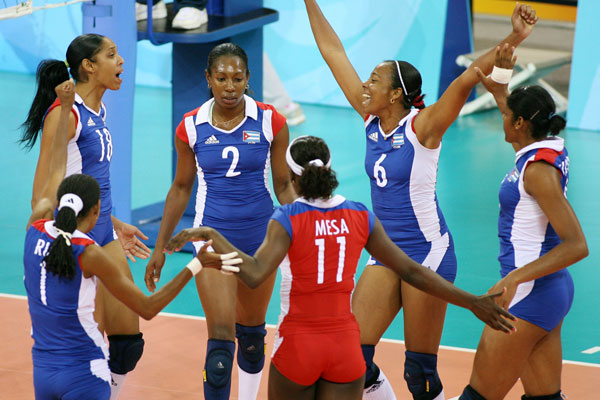If at the time Cubans celebrated the triumph of the Revolution in every corner of the country, a few weeks ago, they professed the love and respect that Fidel Castro earned.
After Dictator Fulgencio Batista (1952-1959) fled 57 years ago, the guerrilla leader started his trip to the capital.
On tanks and armored vehicles taken from the former regime, the young revolutionary man and his comrades toured towns and cities along the Central Road, from the East to the West, stopping over in towns like Palma Soriano, Jiguaní, Bayamo or Las Tunas and Camagüey.
In Camagüey, Fidel addressed local people to assure them that since the very beginning of the struggle for independence, the objective was only one, to guarantee the social development of the nation, but essentially of the people.
‘As I traveled the streets of this city today, it seemed that everything was huge happiness on the faces and I thought… behind each face that is happy, how many concerns are there? How many of those men and women who are bursting with joy have a job or a cent in their pocket? How many have the security that if their son or a brother gets sick they will be able to buy medicine? Fidel wondered.
He noted, ‘Freedom is not everything. Freedom is the first part, it is the freedom to start having the right to fight.’
Fidel and his comrades of arms traveled to Cienfuegos, in central Cuba, where they passed through Manacas, Matanzas and from there they went to Havana, where Commander Camilo Cienfuegos was waiting for him.
People in Havana cheered and called Fidel! Fidel! Fidel!, Long live the Revolution! Long live free Cuba! They welcomed the leader of the Rebel Army in the neighborhood of Cotorro, where hundreds of people accompanied him with joy to the then military camp of Columbia, where he addressed Cubans from an improvised tribune.
‘I think this is a decisive time in our history: the tyranny has been defeated. There is huge happiness. However, there is a lot to do yet. We cannot deceive ourselves by thinking that from now on everything will be easy; perhaps from now on everything will be more difficult,’ he warned at the time.
A natural-born speaker, Fidel committed with the people, above all, to telling them the truth, to changing history, to transforming society.
‘If I were asked about what troop I prefer to command, I would say, I prefer to command the people, because no general, no army can do more than the people, because the people are invincible,’ he stressed.
Changes were made as circumstances allowed them although, as he warned, the process went through difficult times, including internal maneuvers by the bourgeois opposition and external pressure from who would soon become his worst enemy, the United States.
Among other actions, the Agrarian Reform Act was made official to eliminate large estates, and the land was given to humble peasants. Companies and transnationals were nationalized and were exclusively administered by the people, the only owner of the country’s natural resources.
The mythical revolutionary leader passed away at the age of 90, the same day that he had set sails on the Granma Yacht 60 years before from Tuxpan, Mexico, bound for Cuba, where he resumed the struggle for the homeland’s independence, which he achieved two years later.
Cubans were in mourning, the people paid tribute to Fidel for nine days, a period during which the Caravan of Freedom was retraced, but this time from Havana to Santiago de Cuba, where the ashes of the undefeatable commander in chief are resting, near the remains of his guide, Jose Marti, at the Santa Ifigenia Cemetery.
Therefore, between November 29 and December 4, 2016, the premonition that he made on January 8, 1959, before the people in Havana in the current Enrique Jose Varona University of Pedagogical Sciences became a reality, when he said,
‘I also know that never again in our lives we will witness a crowd like this, except on another occasion, on which I know the crowds will gather again, and it will be on the day that we die, because we, when we have to be taken to our grave, on that day, as many people as today will gather, because we will never let our people down!
*A journalist at the National Desk of Prensa Latina



